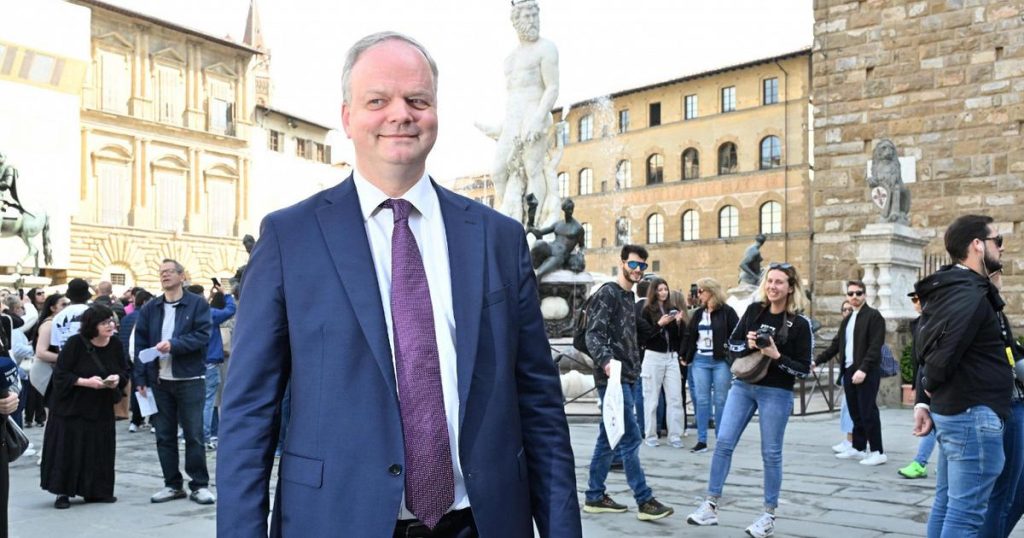Eike Schmidt officially announced his candidacy for mayor of Florence on the birthday of Raffaello Sanzio. He expressed his intention to seek the support of the center-right political parties. Schmidt confirmed that he had been contemplating the idea of running for mayor since July, and after receiving encouragement from friends and the public, he decided to take the plunge. He emphasized that his candidacy is not a challenge to the Democratic Party but a commitment to serve the people of Florence. Schmidt plans to formalize his campaign and coordinate with civic groups to establish his platform soon.
Schmidt criticized his potential opponents by pointing out that they have been on leave from their positions to focus on election campaigning for a while now. He highlighted issues such as security, overtourism, and the lack of youth engagement as challenges that need to be addressed in Florence. Schmidt envisions the Cascine area transforming into a Central Park-like space that embodies the city’s rich history and culture while prioritizing beauty, safety, and cleanliness for all citizens. His candidacy received praise from Fratelli d’Italia and the Lega party, with Vice Premier Matteo Salvini expressing support and acknowledging the competitive nature of the upcoming election.
Minister of Culture Gennaro Sangiuliano welcomed the prospect of having a German-born museum director serve as mayor of Florence, as it would symbolize a strong European spirit. Sangiuliano criticized those who oppose Schmidt’s candidacy as going against the principles of European citizenship and the Italian Constitution’s rights to active and passive suffrage. On the other hand, the Democratic Party in Naples initiated a petition to call for the appointment of a new director at the museum of Capodimonte, expressing concerns over the potential lack of full-time leadership at the prestigious institution due to Schmidt’s candidacy.
Gennaro Acampora, representing the Democratic Party in the Naples City Council, condemned Schmidt’s decision to run for mayor and called for a new director at the Capodimonte museum who prioritizes the institution’s interests over political affiliations. Acampora criticized Schmidt for potentially neglecting the museum’s needs by shifting his focus to political aspirations. The Democratic Party aims to gather support for a qualified museum director through a signature campaign to ensure the institution’s leadership remains independent from political influences.
The announcement of Schmidt’s candidacy for mayor of Florence has sparked debates about the intersection of cultural leadership and political ambition. While supporters view his nomination as a testament to a unified European identity and the right to democratic participation, critics question the potential impact on cultural institutions like the Capodimonte museum in Naples. Schmidt’s decision to enter the political arena sheds light on the complexities of leadership transitions in the cultural sector and the challenges of balancing public service with institutional responsibilities. Ultimately, the upcoming election in Florence will test the resilience of democratic values and the ability of candidates to navigate competing interests in their pursuit of leadership roles.


